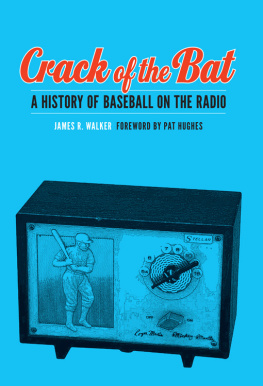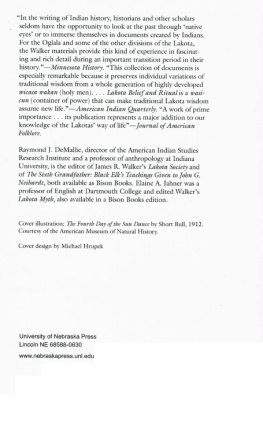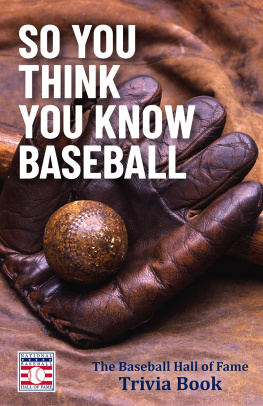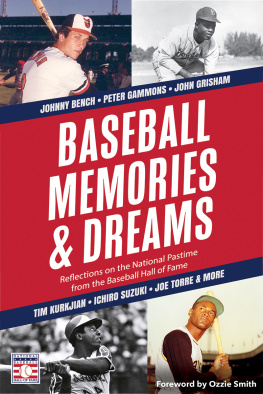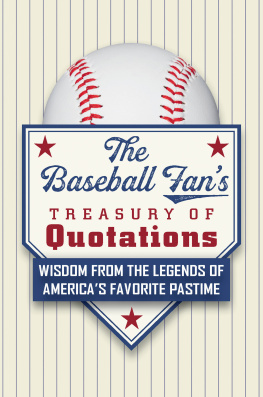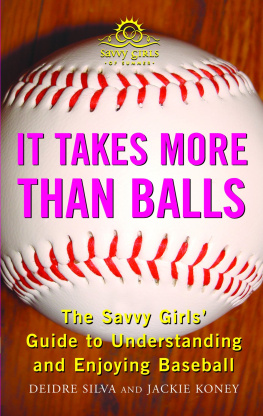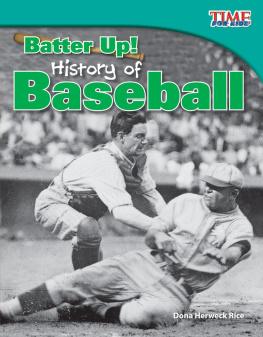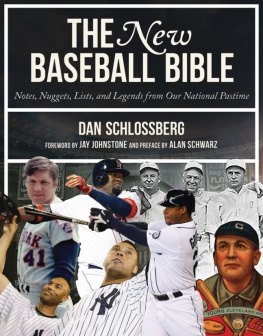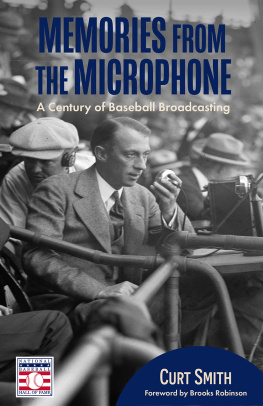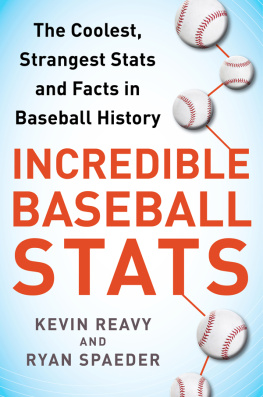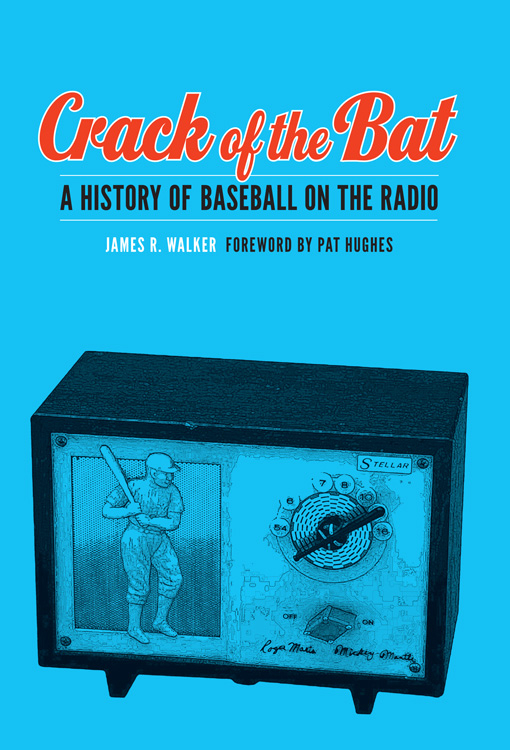James R. Walker - Crack of the Bat: A History of Baseball on the Radio
Here you can read online James R. Walker - Crack of the Bat: A History of Baseball on the Radio full text of the book (entire story) in english for free. Download pdf and epub, get meaning, cover and reviews about this ebook. year: 2015, publisher: Nebraska, genre: Romance novel. Description of the work, (preface) as well as reviews are available. Best literature library LitArk.com created for fans of good reading and offers a wide selection of genres:
Romance novel
Science fiction
Adventure
Detective
Science
History
Home and family
Prose
Art
Politics
Computer
Non-fiction
Religion
Business
Children
Humor
Choose a favorite category and find really read worthwhile books. Enjoy immersion in the world of imagination, feel the emotions of the characters or learn something new for yourself, make an fascinating discovery.
- Book:Crack of the Bat: A History of Baseball on the Radio
- Author:
- Publisher:Nebraska
- Genre:
- Year:2015
- Rating:4 / 5
- Favourites:Add to favourites
- Your mark:
Crack of the Bat: A History of Baseball on the Radio: summary, description and annotation
We offer to read an annotation, description, summary or preface (depends on what the author of the book "Crack of the Bat: A History of Baseball on the Radio" wrote himself). If you haven't found the necessary information about the book — write in the comments, we will try to find it.
The crack of the bat on the radio is ingrained in the American mind as baseball takes center stage each summer. Radio has brought the sounds of baseball into homes for almost one hundred years, helping baseball emerge from the 1919 Black Sox scandal into the glorious World Series of the 1920s. The medium gave fans around the country aural access to the first All-Star Game, Lou Gehrigs farewell speech, and Bobby Thomsons Shot Heard Round the World. Red Barber, Vin Scully, Harry Caray, Ernie Harwell, Bob Uecker, and dozens of other beloved announcers helped cement the love affair between radio and the national pastime.
Crack of the Bat takes readers from the 1920s to the present, examining the role of baseball in the development of the radio industry and the complex coevolution of their relationship. James R. Walker provides a balanced, nuanced, and carefully documented look at radio and baseball over the past century, focusing on the interaction between team owners, local and national media, and government and business interests, with extensive coverage of the television and Internet ages, when baseball on the radio had to make critical adjustments to stay viable.
Despite cable televisions ubiquity, live video streaming, and social media, radio remains an important medium through which fans engage with their teams. The evolving relationship between baseball and radio intersects with topics as varied as the twenty-year battle among owners to control radio, the development of sports as a valuable media product, and the impact of competing technologies on the broadcast medium. Amid these changes, the familiar sounds of the ball hitting the glove and the satisfying crack of the bat stay the same.
James R. Walker: author's other books
Who wrote Crack of the Bat: A History of Baseball on the Radio? Find out the surname, the name of the author of the book and a list of all author's works by series.

